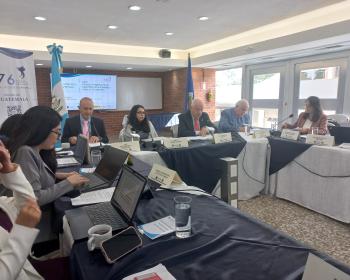
September 13, 2025, marks 18 years since the United Nations General Assembly adopted the UN Declaration on the Rights of Indigenous Peoples (UNDRIP).
In celebration of the 18th anniversary of the adoption of UN Declaration on the Rights of Indigenous Peoples, Cultural Survival is taking a look back at the top wins for Indigenous Peoples over the past year. From historic land back cases to positive legal rulings, there has been important progress.
May 2024: UN States Adopt Treaty Protecting Traditional Knowledge
By Daniel Salvador Chindoy Muchavisoy (CS Intern)
Cultural Survival stands in solidarity with people in Nepal, especially with Indigenous Peoples, against the government's decision on September 4, 2025, to ban 26 social media platforms, including WhatsApp, Facebook, Instagram, and YouTube. The government claims this ban was put on social media platforms because they did not follow the registration regulations.
The Seque Jahuira community, part of the Aymara Nation in Bolivia and located in the municipality of Viacha, began a determined struggle in 2024 against 23 mining plants installed on their territory. These plants are responsible for leaching mining waste brought in from other regions of the country. Mining activities have caused ecological devastation throughout the region near the Seque Jahuira community, contaminating water and soil, causing the death of animals, affecting agricultural production, and forcibly displacing community members.
Por Lygia Zamali Fernandes (pesquisadora e membro/a de uma comunidade da Floresta) com colaboração de Edson Krenak, CS Staff